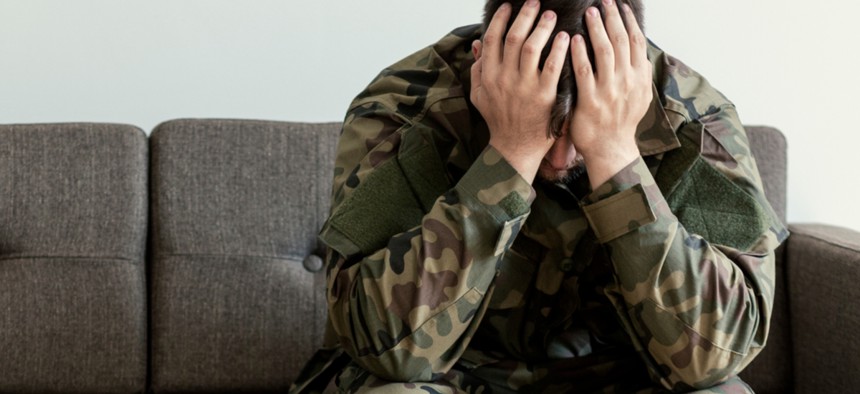Dispatching a 'Battle Buddy' to Help Distressed Veterans

The program started three years ago after police officers in Joliet noticed an uptick in calls from distressed veterans. Shutterstock

Connecting state and local government leaders
An initiative in Joliet, Illinois, sends police officers with military experience to respond to calls for service involving veterans who need help.
Three years ago, police officers in Joliet, Illinois, began noticing an uptick in calls from distressed veterans.
“They were just in need—despondent, some of them were suicidal,” said Lt. Moises Avila. “We started doing research and realized there was nothing available to assist these vets with resources or getting them to different programs, other than the Veterans’ Administration.”
So the Joliet Police Department created one: the battle buddy program, named after a U.S. Army initiative that pairs soldiers together during training to assist each other in and out of combat. The police department’s program works similarly, making sure that whenever possible police officers with military experience are dispatched on 911 calls from or about veterans who need help.
“Members of our police department who are also military veterans can better understand what veterans are going through,” Avila said. “They can be more empathetic to their needs and relate to their experiences with deployment, training, the hardships they go through being away from their family and their kids.”
Participation is voluntary, and officers who join the program must undergo "critical incident" training to learn how to respond to and interact with people who may be suffering from mental illness. Upon completing the training, officers get added to a list that’s given to emergency dispatchers, who ask every caller whether they (or the person they're calling about) served in the military.
“The dispatcher will ask more follow-up questions, especially in a scenario where a threat of violence has been made to themselves or others.They'll find a tactful way to ask. It's part of their protocol,” Avila said. “They have a list of all the officers in the program, and if there’s an officer working, they’ll refer that call to that officer, or they’ll get on the dispatch and ask if there’s a battle buddy officer working.”
If no one is available, the details of the call are sent to Officer Chad Evans, the program’s founder, who follows up later. Calls run the gamut and can involve veterans who are suffering from post-traumatic stress disorder to anxiety and depression. There are currently 18 battle buddies within the police department who have collectively responded to five calls from veterans so far this year. One person who called was suicidal, while the others required referrals to other services within the community. The shared experience of serving in the military usually makes responding easier, Avila said, as veterans are typically more comfortable opening up to officers who seem to understand them.
“If you haven’t served in the military you can try to empathize, but we’ve seen the difference with the connection we’ve made with veterans,” he said. “They just tend to open up more, because the mindset is, ‘You understand where I’m coming from.’”
The program is free for the department, which tries to promote it regularly on social media. Officials were not aware of other departments who have done similar initiatives, but are hopeful that the idea could spread in the future.
“As we get this more and more visible on our social platforms I would think more departments would come forward with similar programs,” said Deputy Police Chief Michael Batis. “There is a stigma attached to mental illness and suicide, especially with military veterans, who think they should be able to stand on their own two feet. We want to get the message out that it is a strength to ask for help.”
Kate Elizabeth Queram is a Staff Correspondent for Route Fifty and is based in Washington, D.C.

NEXT STORY: Six U.S. Cities Make the List of Most Surveilled Places in the World




